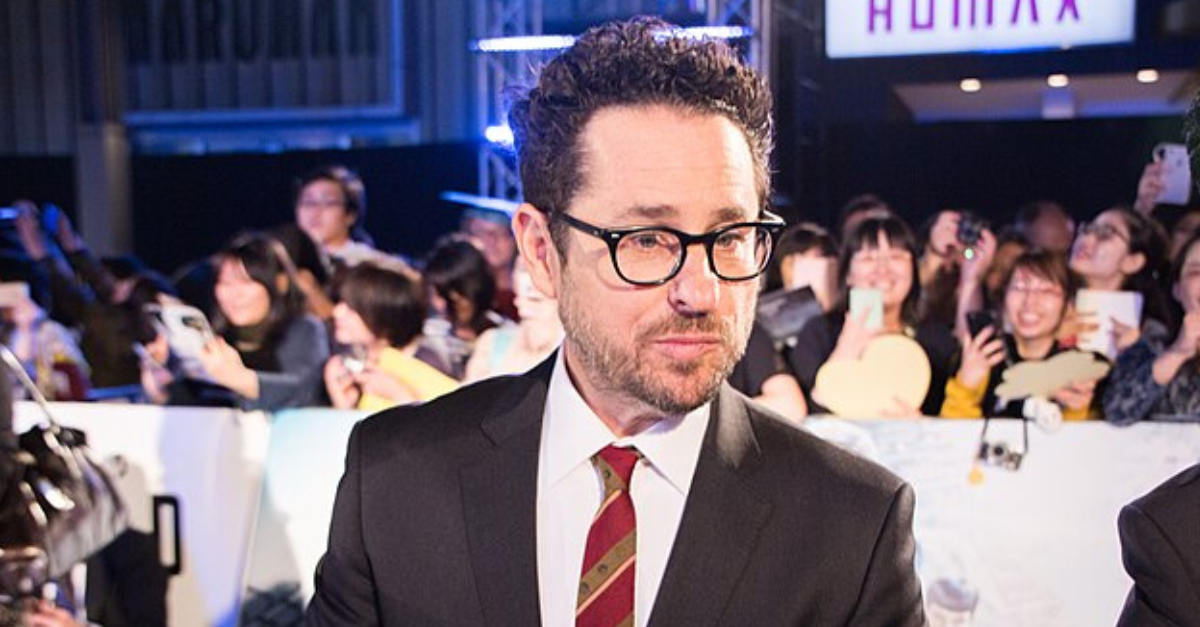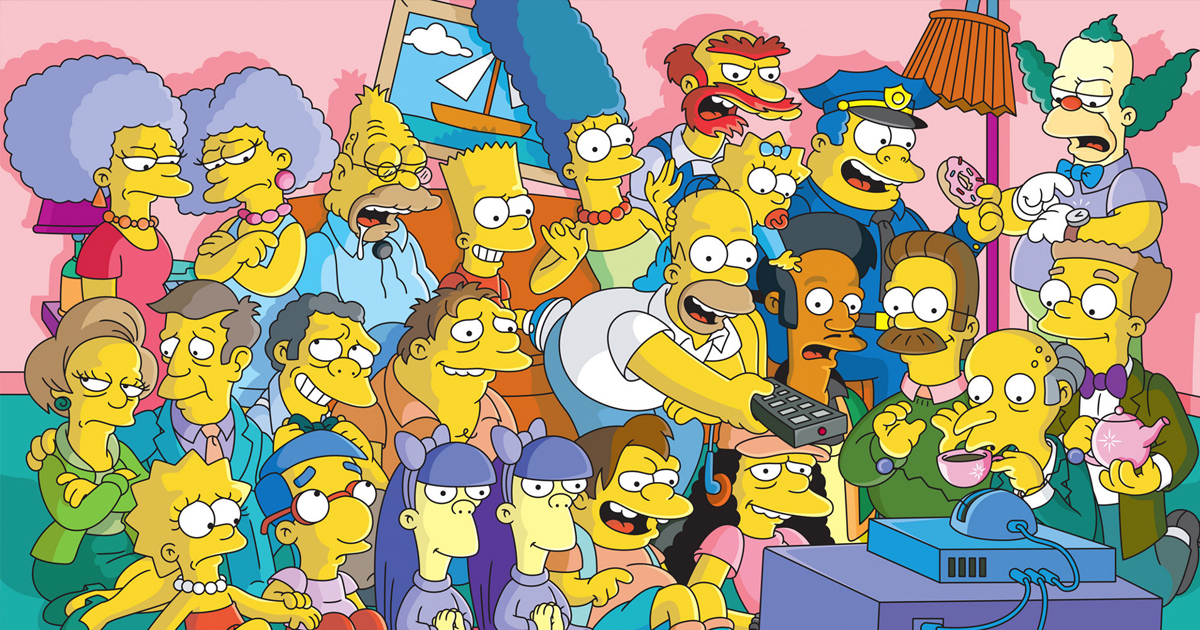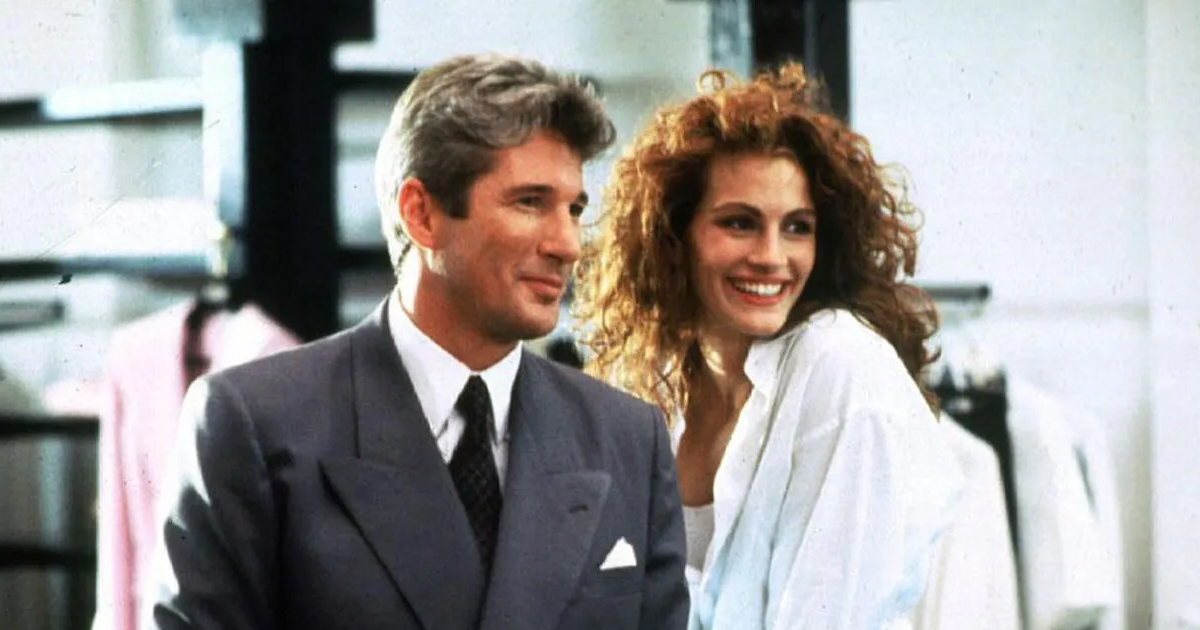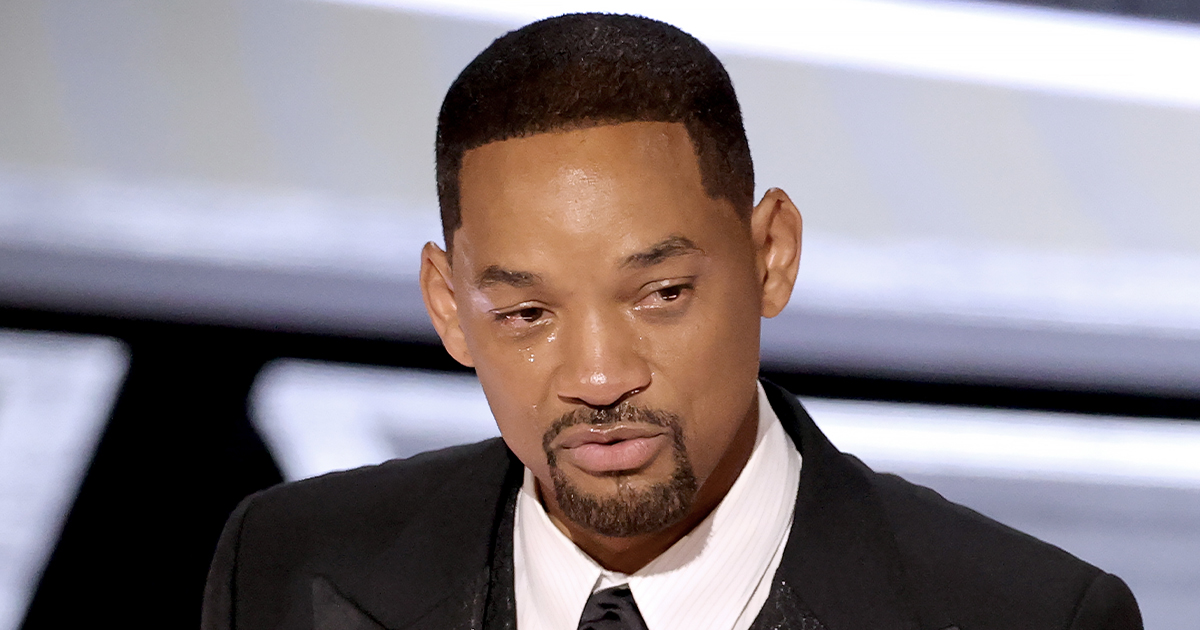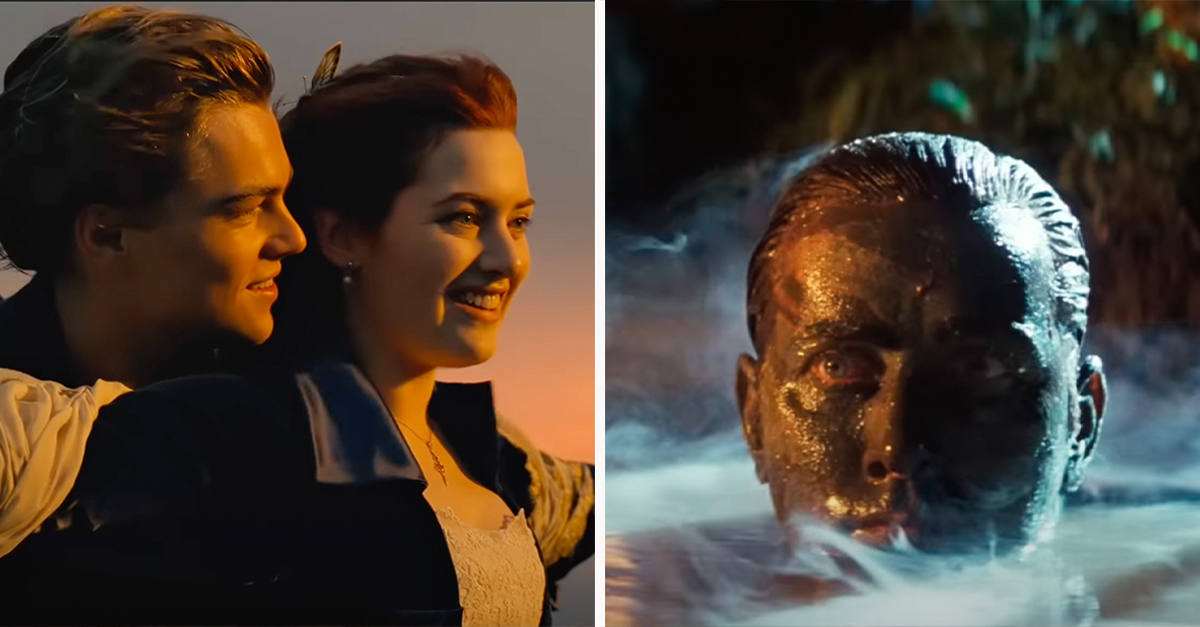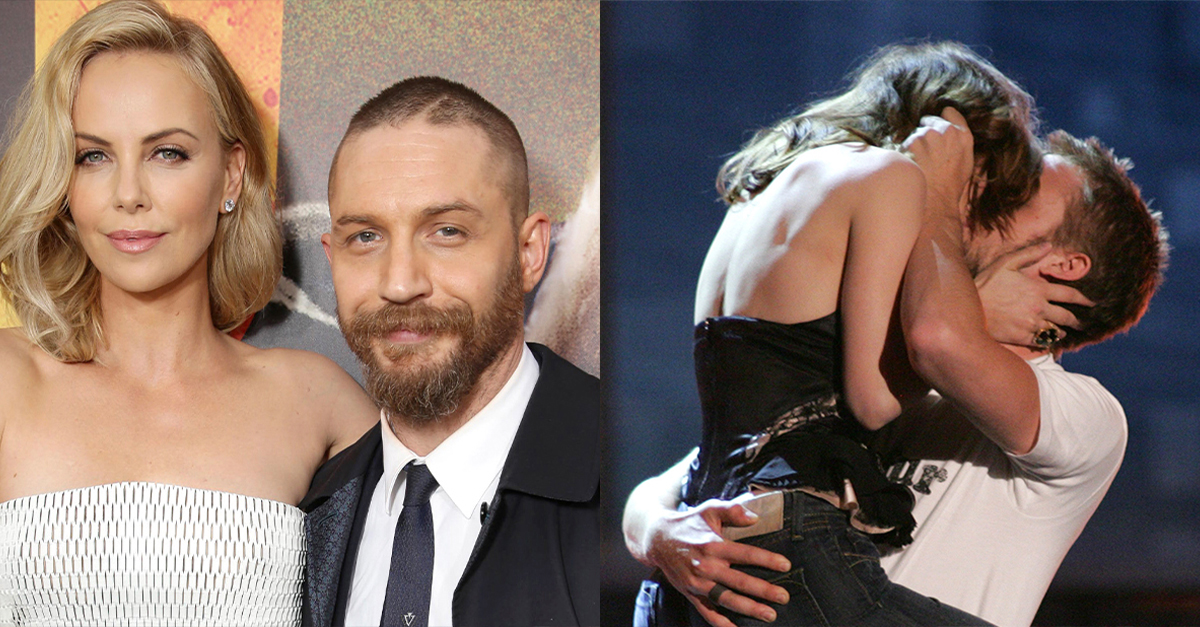When The Credits Roll And The Arguments Start
Some movies end and you move on. Others roll credits and suddenly you’re in a ten-minute monologue about symbolism while your friends pretend to look for parking validation. These are the films that refuse to land cleanly—they hand you a puzzle and disappear, leaving decades of debate in their wake.
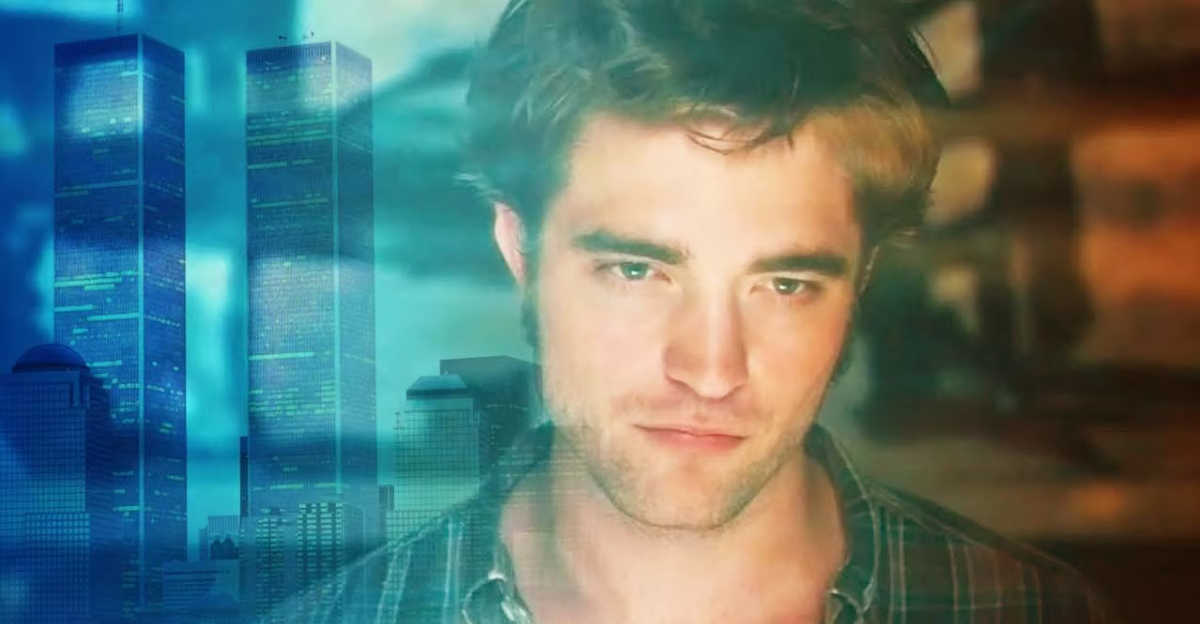 The Shining: Has Jack Always Been At The Overlook?
The Shining: Has Jack Always Been At The Overlook?
Jack’s frozen in the maze, yet the final photo shows him partying at the hotel in 1921. Reincarnation? Absorption? A hotel with a scrapbook full of stolen souls? The movie never explains it, which makes the Overlook feel even more predatory—and the debates even livelier.
 Screenshot from The Shining, Warner Bros. (1980)
Screenshot from The Shining, Warner Bros. (1980)
The Thing: Who’s Really Human In That Final Standoff?
MacReady and Childs sit in the snow, sharing booze while the fire dies. One could be the Thing. Both could be. Neither might be. The movie shrugs. That unresolved tension is why fans still argue breath vapor, screen clues, and trust issues decades later.
 Screenshot from The Thing, Universal Pictures (1982)
Screenshot from The Thing, Universal Pictures (1982)
Inception: Does The Top Ever Fall?
Cobb spins the top, walks away, and the film cuts before we see whether it drops. Some swear it wobbles. Others insist he’s dreaming. Nolan insists the question misses the point. Which, naturally, made the argument louder.
 Screenshot from Inception, Warner Bros. (2010)
Screenshot from Inception, Warner Bros. (2010)
American Psycho: Killer, Fantasist, Or Both?
Bateman confesses to murders, only for his lawyer to insist one “victim” is alive. Nothing is confirmed, nothing is denied, and everything feels off. Whether he took anyone out or just fantasized about it, the system’s indifference is the real horror.
 Screenshot from American Psycho, Lionsgate Films (2000)
Screenshot from American Psycho, Lionsgate Films (2000)
Shutter Island: Is Andrew Choosing His Own Lobotomy?
Andrew remembers who he is—then seems to slip back into his Teddy persona. His final question about living as a monster or dying as a good man leaves audiences wondering whether he relapsed or purposely chose oblivion. Both readings break your heart differently.
 Screenshot from Shutter Island, Paramount Pictures (2010)
Screenshot from Shutter Island, Paramount Pictures (2010)
Blade Runner: Is Deckard A Replicant After All?
Deckard finds Gaff’s origami unicorn and pauses like someone hacked his memories. Some cuts of the film include his unicorn dream; others don’t. Even Ford and Scott disagree. That’s why the debate lives on—replicant or not, the uncertainty is the point.
 Screenshot from Blade Runner, Warner Bros. (1982)
Screenshot from Blade Runner, Warner Bros. (1982)
2001: A Space Odyssey: What Does The Star Child Mean?
Bowman ages in a strange room, reaches toward a monolith, and becomes a cosmic fetus staring down at Earth. Evolution? Rebirth? Alien reboot? The movie offers only images, leaving everyone else to build meaning from the silence.
 Screenshot from 2001: A Space Odyssey, Metro-Goldwyn-Mayer (1968)
Screenshot from 2001: A Space Odyssey, Metro-Goldwyn-Mayer (1968)
Donnie Darko: Time Travel Or Dying Dream?
Donnie stays in bed and dies, seemingly undoing the chaos we just watched. Is he a sacrificial time-travel hero, or is the entire movie the final hallucination of a doomed teen? The movie mixes science, dreams, and fate so thoroughly that either reading works.
 Screenshot from Donnie Darko, Newmarket Films (2001)
Screenshot from Donnie Darko, Newmarket Films (2001)
Mulholland Drive: Who’s Real—Betty Or Diane?
The film flips halfway through—Betty becomes Diane, Rita becomes Camilla—and nothing lines up neatly. Many say the first half is a dream, the second reality. But Lynch’s clues bend more than they clarify, making interpretation half the fun.
 Screenshot from Mulholland Drive, Universal Pictures (2001)
Screenshot from Mulholland Drive, Universal Pictures (2001)
Doubt: Did Father Flynn Actually Do Anything?
Sister Aloysius forces Flynn out with a bluff, then confesses she had no proof and now has doubts herself. The film refuses to confirm guilt or innocence, instead spotlighting the uncomfortable space between suspicion, morality, and certainty.
 Screenshot from Doubt, Miramax Films (2008)
Screenshot from Doubt, Miramax Films (2008)
Taxi Driver: Is The Ending Real Or Coma Fantasy?
After a bloody shootout, Travis wakes a hero—maybe. His final glance in the mirror suggests something darker. Some believe it’s all a coma dream; others see it as brutally real. Either way, the ending warns that society loves a violent story.
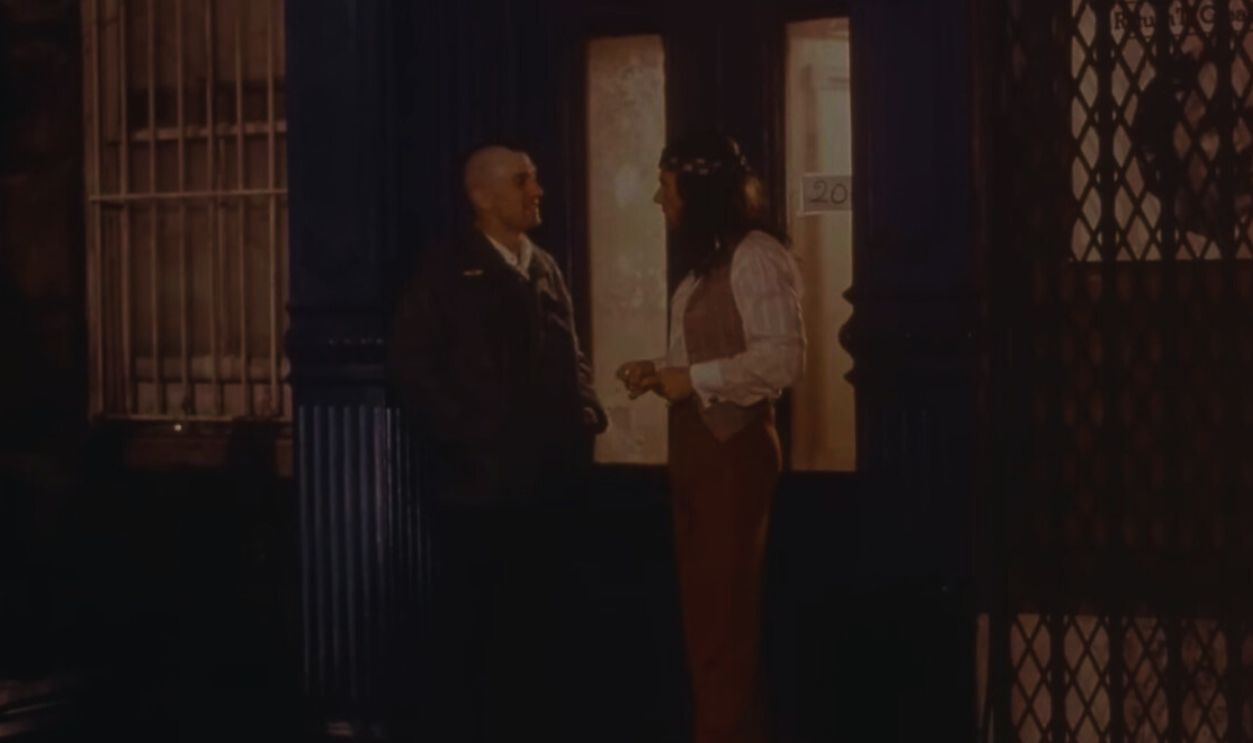 Screenshot from Taxi Driver, Columbia Pictures (1976)
Screenshot from Taxi Driver, Columbia Pictures (1976)
Eternal Sunshine Of The Spotless Mind: Do They Break Up Again?
Joel and Clementine hear tapes of their worst arguments and decide to try again anyway. It’s either hopeful or tragic depending on your temperament. The movie leaves them mid-laugh, daring you to guess whether history repeats.
 Screenshot from Eternal Sunshine of the Spotless Mind, Focus Features (2004)
Screenshot from Eternal Sunshine of the Spotless Mind, Focus Features (2004)
A Clockwork Orange: Is Alex Truly “Cured”?
Alex ends the film gleefully imagining the worst again, celebrating his supposed “cure”. Whether he’ll act on it is left unstated. The ending avoids easy answers, forcing viewers to grapple with free will and failed reform.
 Screenshot from A Clockwork Orange, Warner Bros. (1971)
Screenshot from A Clockwork Orange, Warner Bros. (1971)
Birdman: Does Riggan Fly Or Fall?
Riggan steps out the hospital window. Sam looks down, then up, and smiles. No body, no wings, just ambiguity. It’s either a triumph of delusion or a poetic final fall—and the movie leaves the audience to finish the shot.
 Screenshot from Birdman, Fox Searchlight Pictures (2014)
Screenshot from Birdman, Fox Searchlight Pictures (2014)
The Green Knight: Does Gawain Lose His Head?
Gawain kneels. The Knight draws a finger across his throat, jokes, and the film cuts. Maybe Gawain’s bravery saves him; maybe the promise is fulfilled. The ending acts like a medieval inkblot test—your interpretation reveals your values.
 Screenshot from The Green Knight, A24 (2021)
Screenshot from The Green Knight, A24 (2021)
Titanic: Is Rose Dreaming Or Crossing Over?
Old Rose lies down, and suddenly young Rose reunites with Jack aboard the ship. It could be a dream. It could be the afterlife. The film stays silent, choosing emotional closure over definitive answers.
 Screenshot from Titanic, Paramount Pictures (1997)
Screenshot from Titanic, Paramount Pictures (1997)
The Mist: The Bleakest “What If” Ending Ever
David takes out the survivors—including his son—believing all hope is lost. Seconds later, the military arrives. It’s one of film’s most infamous gut punches, a brutal reminder that sometimes despair is the real monster.
 Screenshot from The Mist, Dimension Films (2007)
Screenshot from The Mist, Dimension Films (2007)
Signs: Why Would Water-Fearing Aliens Come Here?
The aliens’ big weakness—water—makes their invasion plan questionable at best. Some viewers see divine design; others see a plot hole. Either way, a single twist turned an eerie thriller into a decades-long debate.
 Screenshot from Signs, Touchstone Pictures (2002)
Screenshot from Signs, Touchstone Pictures (2002)
Remember Me: The Last-Minute 9/11 Twist
A somber romance suddenly reveals its ending takes place on September 11, 2001. Some find it devastating; others find it manipulative. No matter the reading, the tonal whiplash ensured the ending would never be forgotten.
 Screenshot from Remember Me, Summit Entertainment (2010)
Screenshot from Remember Me, Summit Entertainment (2010)
Planet Of The Apes (2001): The Ape Lincoln Problem
Burton’s remake ends with ape authorities and an ape Lincoln Memorial, and zero explanation for how or why. Instead of a mic-drop twist, it’s a what-timeline-is-this riddle that still doesn’t add up.
 Screenshot from Planet of the Apes, 20th Century Fox (2001)
Screenshot from Planet of the Apes, 20th Century Fox (2001)
Star Wars: The Rise Of Skywalker: Who Gets To Be A Skywalker?
Rey buries the Skywalker sabers on Tatooine and adopts the Skywalker name. For some, it’s a touching symbol; for others, it’s unearned and oddly fixated on the wrong planet. One sentence divided the fandom more than any Sith ever could.
 Screenshot from Star Wars: The Rise of Skywalker, Lucasfilm (2019)
Screenshot from Star Wars: The Rise of Skywalker, Lucasfilm (2019)
You May Also Like:
The Groundbreaking Writing Career Of S. E. Hinton
Movies That Defined The Birth Of Modern Hollywood

